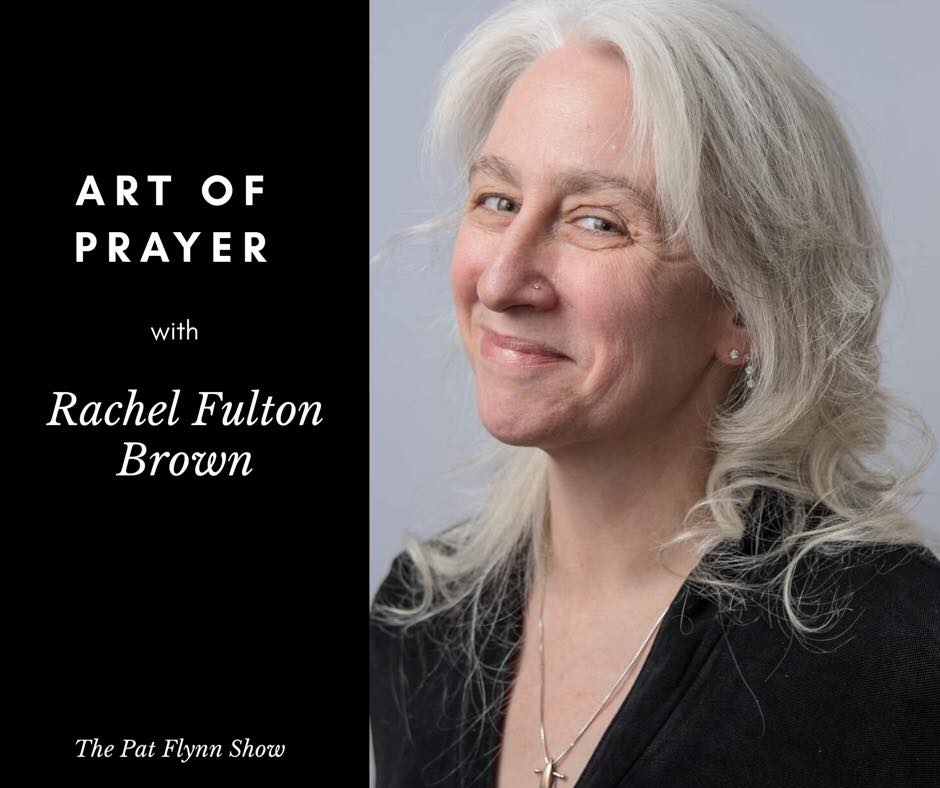
Professor Rachel Fulton Brown is a professor of medieval European history at the University of Chicago, who specializes in the study of devotion and prayer, along with the works of J.R.R Tolkien.
In this conversation, Professor Brown, a lifelong Christian, and recent convert to Catholicism, discloses much of her spiritual journey, talks about how to develop spiritual discipline in a largely secular age (an analogy she ties beautifully into fencing), and how a proper understanding of the Virgin Mary is necessary to save the soul of Western Civilization–a statement which has gotten her into some recent controversy!
In this episode, we also discuss: How to step inside the beam of devotion to gain a greater understanding of God; how to think about–and respond to–corruption in the church; and her recent work with a rather interesting–and indeed, controversial–figure!
A deep and, at times, provocative interview, that comes with more than a few surprises, I hope you enjoy my conversation with Professor Rachel Fulton Brown.
OR, ==> CLICK HERE TO DOWNLOAD THE EPISODE.
Show Notes and Resources
Professor Brown’s book: Mary and the Art of Prayer
Professor Brown’s blog: Fencing Bear at Prayer
Professor Brown’s Youtube: Three Kraters Symposium
The Pat Flynn Show
If you enjoyed this episode, it would mean the world to me if you could subscribe to, and leave a review for, The Pat Flynn show on iTunes HERE or Stitcher HERE.
Reading your reviews and hearing your feedback is what keeps me fired up to make The Pat Flynn Show happen. Thank you!
Pat,
Really great episode … I really appreciated the acknowledgment of an “insider” perspective from a scholar of religion.
There seem to be some limitations related to divinity and Mary that are regrettable.(although, limitations based on gender where justifiably transcended) As a student (informal) of esoteric traditions of the Hellenistic period relating to Palestinian Judaism, there is evidence of a more exalted status for a Holy Feminine. Genesis 1 speaks of the Spirit ‘brooding’ over the face of the waters bringing Being to the Light. This is a likely source of the vision of the Spirit descending like a dove with proclamations of procreation onto the historical Jesus. This tradition ‘could’ place Mary within the Trinity under the fold of the Holy Spirit, rather than a mere ‘outside’ revealer of divinity. These distinctions may be the source of Protestant aversions to Marion devotion, fueled by earlier theologies of a closed trinity. This may also be heterodox to the Catholic Church, but probably not to some esoteric traditions that cultivated visions such as the one at the Jordan River.
ken
Glad you liked this one, Ken. Sounds like you might well enjoy working through Rachel’s book, at least if I’m reading you right. It’s certainly next on my list of big, fat, coarse textbooks to tear through. Good news is she’s a fantastically engaging writer, so you know it won’t be dull.
I’ve always been fascinated by fencing and took a fencing class in college. Rachel Brown’s story of how she started is funny, but the results and her spiritual journey is fascinating. While I am interested in fencing, I was more interested by her take on spirituality, particularly her journey to Catholicism. I was raised Catholic but converted to Christianity later in life so I’m always fascinated by how people turn to Roman Catholicism. I enjoy Pat’s discussions of his conversion and Dr. Brown’s discussion was equally interesting.
The truth can be disturbing for the ignorant. Professor Brown’s discussion of today’s atheists and their prepubescent knowledge of theology struck home. I don’t understand how people can talk about religion (whichever religion it may be) without a basic foundation. While there are atheists who do their research before they debate, I think many (especially younger) atheists have a weak grasp on what Christianity is. Thanks for pointing this out.
I never thought someone would get into fencing through a medieval manual, but I guess it goes to show how there are many twists and turns in this thing called life (notice I didn’t say “this game called life” because life is no game—this is the real thing).
Rachel you are right—laughter is so powerful a force including using it against despots. Humor (particularly satire) has traditionally been a great tool, particularly for the marginalized to expose society’s ills and people who abuse power. In regards to the priest scandal, there is a desperate need for reform and it’s chilling how the Church’s bureaucracy has hidden so much, not only harming victims, but destroying people’s faith in Catholicism itself. I liked how you used the term simony to describe what’s going on.
Pat, I’m glad you’re a supernaturalist. Evil does exist in the world and it’s disturbing how people’s ignorance blinds them to its existence and its corrupting nature. I think the topic of evil can be a good way to broach discussion about the Lord as people wonder why the world is so broken, whether it’s corruption or bad manners. For example, people lament political systems, blaming capitalism, socialism, the patriarchy, etc., but the real root of our problems is humanity’s sinful nature and the presence of evil. Keep discussing the truth as we need people to open their eyes, both physically and spiritually.